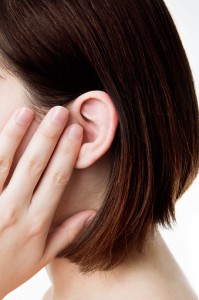Swimmer’s ear is a bacterial infection that affects the outermost portion of the ear canal. A common cause is the accumulation of water in this portion of the canal that leads to a bacterial infection. It can also be caused by the insertion of unclean foreign objects into the ear that irritate the lining of the ear canal.
Signs and symptoms of swimmer’s ear are:
• Redness in the ear canal
• Itchiness in the ear
• Fluid discharge which may include pus
• Muffled hearing
• Sensation of fullness in the ear
• Fever if the infection is severe
A few factors that can make a person more susceptible to swimmer’s ear are:
• Swimming in water that isn’t clean
• Having a narrow ear canal
• Abrasion of the ear canal by improper use of a cotton swab
• Reduced production or improper removal of ear wax
It is important to treat swimmer’s ear as soon as possible in order to prevent serious complications such as hearing loss. Depending on the severity of the problem, treatment options are ear drops containing antibiotics, steroid, and a mild acidic solution. Have your physician evaluate the problem as soon as possible. If you would like to make an appointment with a physician at Jamaica Hospital, please call 718-206-700
All content of this newsletter is intended for general information purposes only and is not intended or implied to be a substitute for professional medical advice, diagnosis or treatment. Please consult a medical professional before adopting any of the suggestions on this page. You must never disregard professional medical advice or delay seeking medical treatment based upon any content of this newsletter. PROMPTLY CONSULT YOUR PHYSICIAN OR CALL 911 IF YOU BELIEVE YOU HAVE A MEDICAL EMERGENCY.


